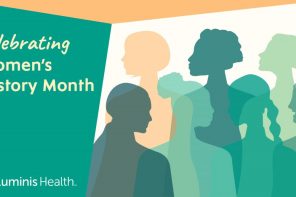More than 29 million Americans have diabetes, and the Centers for Disease Control and Prevention (CDC) estimates that 8 million of those people do not yet know they have it.
While these statistics are staggering, Barbara Mensah Onumah, MD, medical director of Luminis Health Diabetes & Endocrinology Annapolis, is even more concerned about another alarming fact: 86 million American adults—more than one out of three—have prediabetes, a precursor to type 2 diabetes. And, nine out of 10 people with prediabetes don’t know they have it.
People with prediabetes have higher-than-normal blood-sugar levels but do not yet meet the criteria for a diabetes diagnosis.
“Without lifestyle changes to reverse risk factors, 15 to 30 percent of those with prediabetes will develop type 2 diabetes within five years. If you take action, studies tell us that you can prevent or delay type 2 diabetes and, in some cases, return blood glucose levels to within the normal range,” Dr. Onumah stresses.
Luminis Health Diabetes & Endocrinology Annapolis offers comprehensive management, treatment and education for patients with diabetes. The program was created to complement care given by patients’ primary care providers and other specialists. Luminis Health’s diabetes care resources include:
- group education classes and access to support groups
- highly individualized counseling
- one-on-one nutrition counseling
- instruction on insulin pump usage and continuous glucose monitoring
The program can be reached at 443-481-4600.
Because so many Americans do not know they are at risk for developing type 2 diabetes, Dr. Onumah says that education coupled with physician-recommended screening tests are essential.
Education begins with learning the risk factors for type 2 diabetes. The two most significant risk factors, both modifiable, are obesity and inactivity.
Non-modifiable risks include a family history of type 2 diabetes; African-American, Latino or Native American heritage; age of 45 or older; and for women, a diagnosis of gestational diabetes when pregnant. Knowing and discussing your risk factors with your physician helps pinpoint the right diabetes screening schedule for you.
“A groundbreaking study showed us that education alone is not enough,” Dr. Onumah cautions. “There must also be motivational counseling.”
The study she cites placed 3,234 overweight participants—all with increased risk for developing type 2 diabetes—into three distinct groups and followed them for three years. Compared to the placebo (those who did not receive individualized counseling or medication), those who received individualized counseling and were able to lose about 7 percent of their body weight through diet and exercise reduced their risk of developing diabetes by approximately 60 percent. The group that received medication alone reduced their risk of diabetes by about 30 percent.
“It’s essential we understand the importance of increased risk of diabetes,” Dr. Onumah says. “Lifestyle interventions, addressed quickly and consistently, can change lives.”
 Barbara Mensah Onumah, MD, is medical director of Luminis Health Diabetes & Endocrinology Annapolis and can be reached at 443-481-4600.
Barbara Mensah Onumah, MD, is medical director of Luminis Health Diabetes & Endocrinology Annapolis and can be reached at 443-481-4600.




